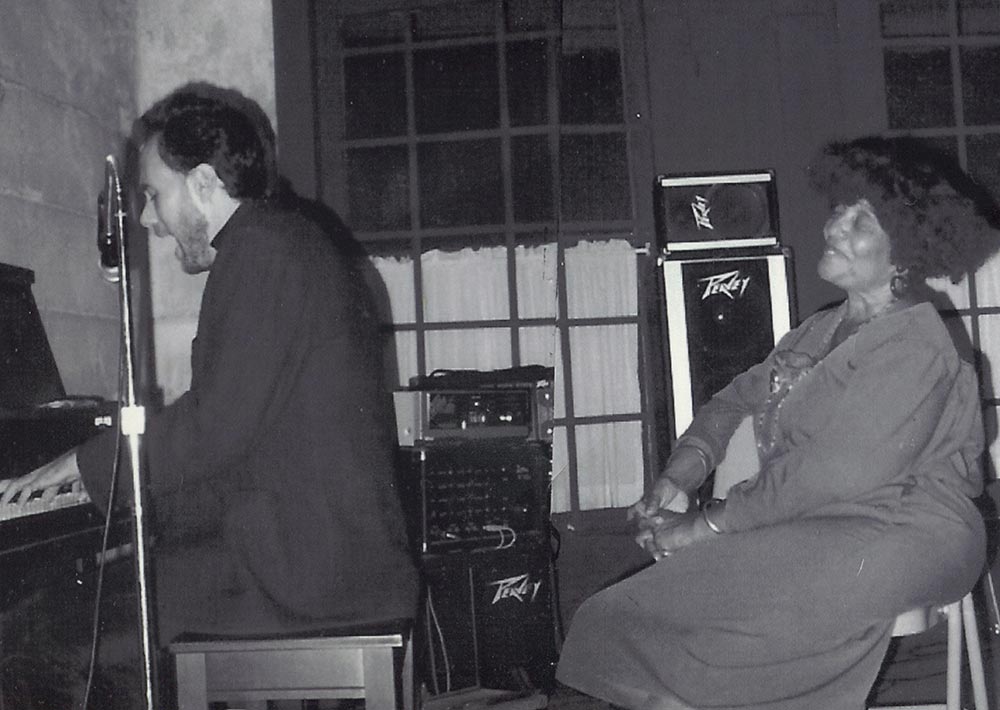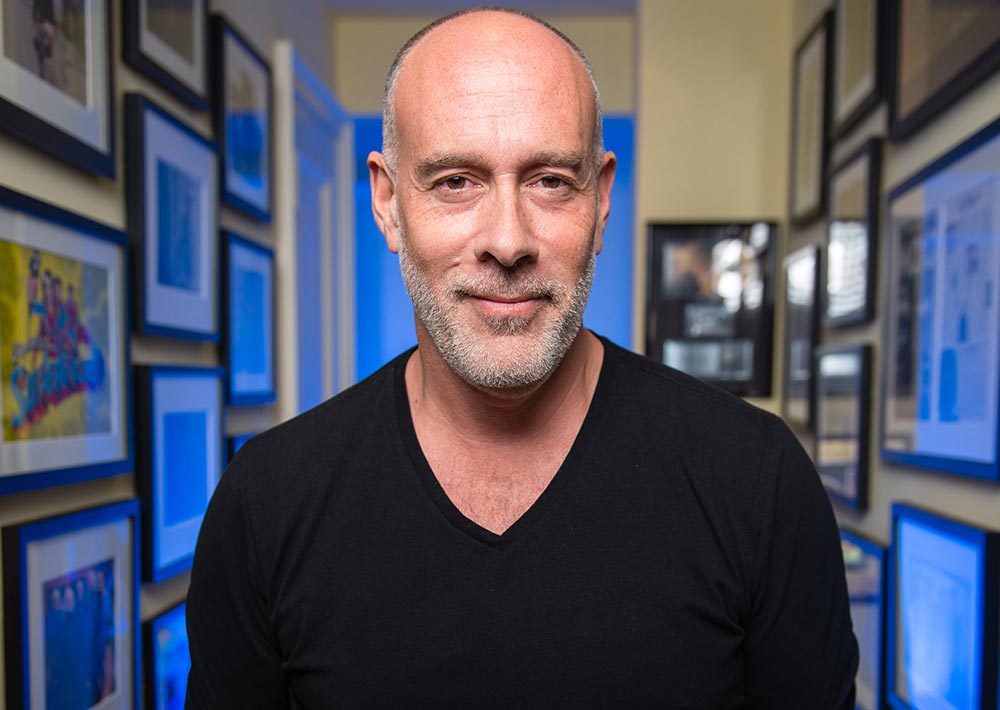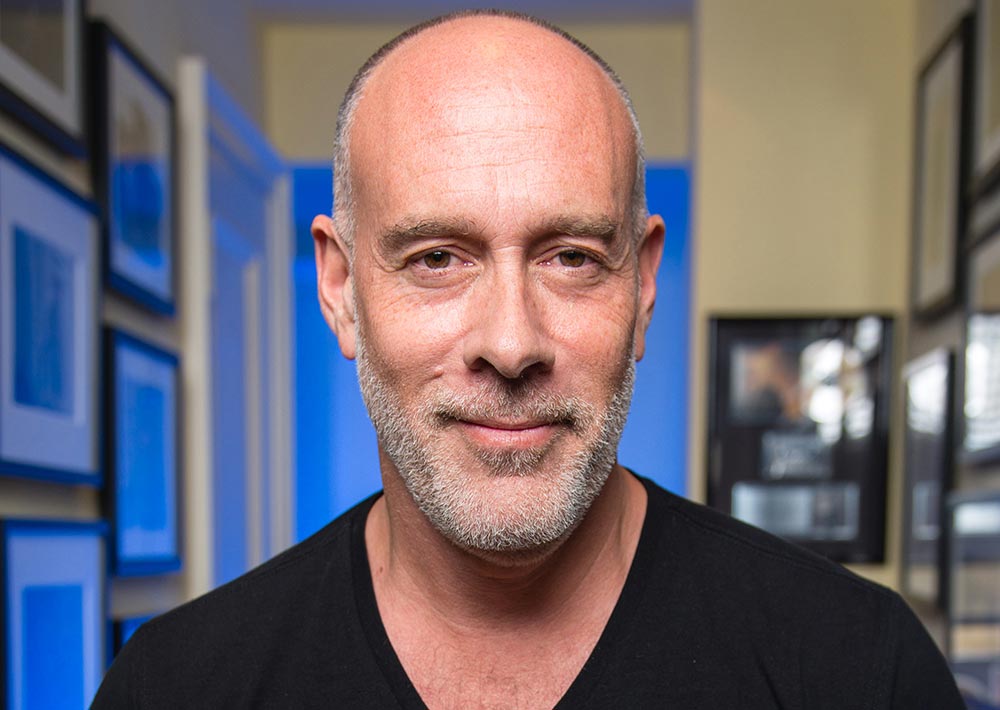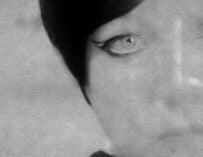A romantic trip to Memphis, Tennessee led to a special friendship being formed and a classic hit single being born
Even if its contribution ended with the songs created at the legendary Sun Studio, Memphis’s place in the annals of music would be assured, but there’s so much more. Nestled on the banks of the Mississippi River, the “Home of the Blues and Birthplace of Rock ‘n’ Roll” had a similar impact on the development of soul, gospel, jazz and R&B. Rufus Wainwright, The Pixies, Chuck Berry and Bob Dylan are just a small selection of musicians who have been inspired to name songs after Tennessee’s second largest city. Perhaps most famous of all is Marc Cohn’s Walking In Memphis, memorably covered by Cher in 1995.
Written by a young songwriter who was still trying to find his voice, it blends the factual with the personal, the spiritual with the mystical – perhaps why the songwriter eventually asks himself, “But do I really feel the way I feel?” The success of the song and Cohn’s platinum-selling debut album was the launch pad for a career as a performer and songwriter still going strong to this day. Here, he tells us how a song about a very specific place has taken him across the globe…

Released: 7 March 1991
Artist: Marc Cohn
Label: Atlantic
Songwriters: Marc Cohn
Producers: Marc Cohn, Ben Wisch
UK chart position: 22
US chart position: 13
“Right around the same time, I was reading a magazine interview with James Taylor and they asked him if he had any advice for upcoming songwriters. His advice was to do what he called ‘a geographic’. He explained that meant to go somewhere with your guitar or keyboard that you’ve never been before. Take a train or plane, take a bus, get in a car, just go somewhere where your sensibilities might be re-awakened because you’re somewhere you’ve never been. That dovetailed with my summoning so I decided to go.
“Luckily, she had already befriended this lovely couple who really knew Memphis. Not just the places that everybody goes like Graceland, but Al Green’s church and the Hollywood Café, where this wonderful woman named Muriel was singing. They’re the ones that took me on this tour that largely became the song. I went there looking for inspiration, but at the same time, there had already been such a plethora of great songs about Memphis that I thought, ‘I probably won’t be able to write about Memphis,’ even though I was there to sort of get the vibe, the ghosts, the stories, whatever it was. There was no sense until the very end of the trip that there might be a song in there, but it was still kind of a distant thought. While I was there, I was just soaking in what was happening. There was really no time to process it for writing. I had to absorb it first.
“The first centrepiece of the trip and of the song was visiting Al Green’s church. One of my all-time heroes and there he is preaching the gospel for four hours. It was an August morning in Memphis and the sweat was rolling down my back. Reverend Al’s voice kept getting stronger and stronger. He was in the spirit and, for a Jewish kid from Cleveland, I was about as in the spirit as I could possibly be. It was just a remarkable experience. Only topped really by meeting Muriel Davis Wilkins, who was singing in a catfish and fried-pickle eatery called the Hollywood Cafe.

Marc Cohn performing to Muriel Davis Wilkins
“Muriel was up on stage and there was an instant connection the minute I saw and heard her. I had an immediate affinity for this woman I didn’t know. She was about 65 years old at the time, a school teacher in Arkansas who was playing the Hollywood to make a little extra money on weekends for her family. During her first break, I went up and introduced myself and told her how much I loved her singing and her playing. She was such a soulful piano player, playing mostly gospel music and standards. She was very generous and interested in me and my story, as you imagine a school teacher might be.
“She asked me a lot about my past, I told her that I was a struggling songwriter, that I had come to Memphis looking for inspiration and that I hadn’t written the songs I thought I was capable of writing yet. We talked about all this. She just took it all in, absorbing in her own way. At some point late at night, she invited me up on stage to sing. I was thrilled but I was terrified.
“Muriel did her set, which was a lot of gospel music that I didn’t know. She would whisper in my ear, prompting me, and I would make up a melody, go with the rhythm of her piano playing and sing along. Then, at the very end of the night when it was quite late she did Amazing Grace, which I knew of course. We sang it together a cappella and the place turned so quiet. That was a moment I’ll never forget.
“One other thing we had talked about was the death of both of my parents when I was quite young. I lost my mother when I was two and I lost my dad when I was 12. At the end of singing Amazing Grace she just leaned over and whispered in my ear, ‘Child, you can move on now. Your mom is with you.’
“It might have been a day or two after I got back to New York City, where I had just moved, that I started to play around with an idea about Memphis. The one thing I remember very clearly is that I started to write it on guitar. I had this arpeggiated figure in my mind. I tried to play it on guitar and it didn’t sound right. I though to myself, ‘This might be better on piano.’ Once I made that switch from guitar to piano, the whole thing flowed pretty easily. I remember that it was a fairly easy song to write, and an impossibly hard song to record.

Marc Cohn on Walking In Memphis: “There was no sense until the very end of the trip that there might be a song in there.”
“At that time, I really didn’t have a band that played my music who I could suss out arrangements with. So when I sat down at a piano, I wasn’t thinking about rhythm, or bass parts, or guitar parts or anything at all. Me and the piano, that’s all I cared about. I knew that I had turned a corner as a songwriter when I wrote that song because it worked so well without any adornment. It begins with me alone. Slowly it builds, the rhythm comes and goes, and towards the end of the song there’s no band again. We were trying to figure out how to make this an intimate performance even with a band. That took a while to find the right players, the right arrangement for all of that to coalesce and become what it eventually became. It took weeks and several versions until we found the arrangement we were looking for.
“It’s hard to know why a song resonates with a listener. Walking In Memphis is a narrative with a beginning, middle and end. I think some people were just drawn to the story, I think others liked the sound of a new voice they hadn’t heard. From what I’ve been told, it’s that last verse that draws people in and makes them want to hear the song again. I knew when I wrote the line where Muriel asks if I’m a Christian that I was beginning to write the kinds of songs that I had been hoping to write.
“Tony Bennett said that I Left My Heart In San Francisco took him around the world, he said it was his, ‘calling card’. That’s how I feel about Walking In Memphis; it literally did take me around the world several times. I’m still very proud of the song. I rarely feel bored when I sing it. And believe me, I have to sing it every night on the road. I have other songs that I feel just as strongly about, if not stronger, but I’m grateful for the fact that I have this song that really has taken me around the world.
“I forgot to say the most important thing… Memphis was just the beginning. For the next eight months, I wrote what basically turned out to be my first record. Most of those songs were written right after leaving Memphis and meeting Muriel, who had given me her blessing to move on, which I did in a big way. I didn’t know I was going to get signed or anything but I knew I had written songs that were at a different level than I had written before. When I had four or five new songs, I went back to Memphis to Hollywood to play the new songs for Muriel. She had her arms crossed and was listening very attentively to these four or five new songs. When I was all done playing, she said, ‘Those are beautiful songs child. But you know that one where you mentioned me? Play that again. I think that’s the best one.’”


































Related Articles